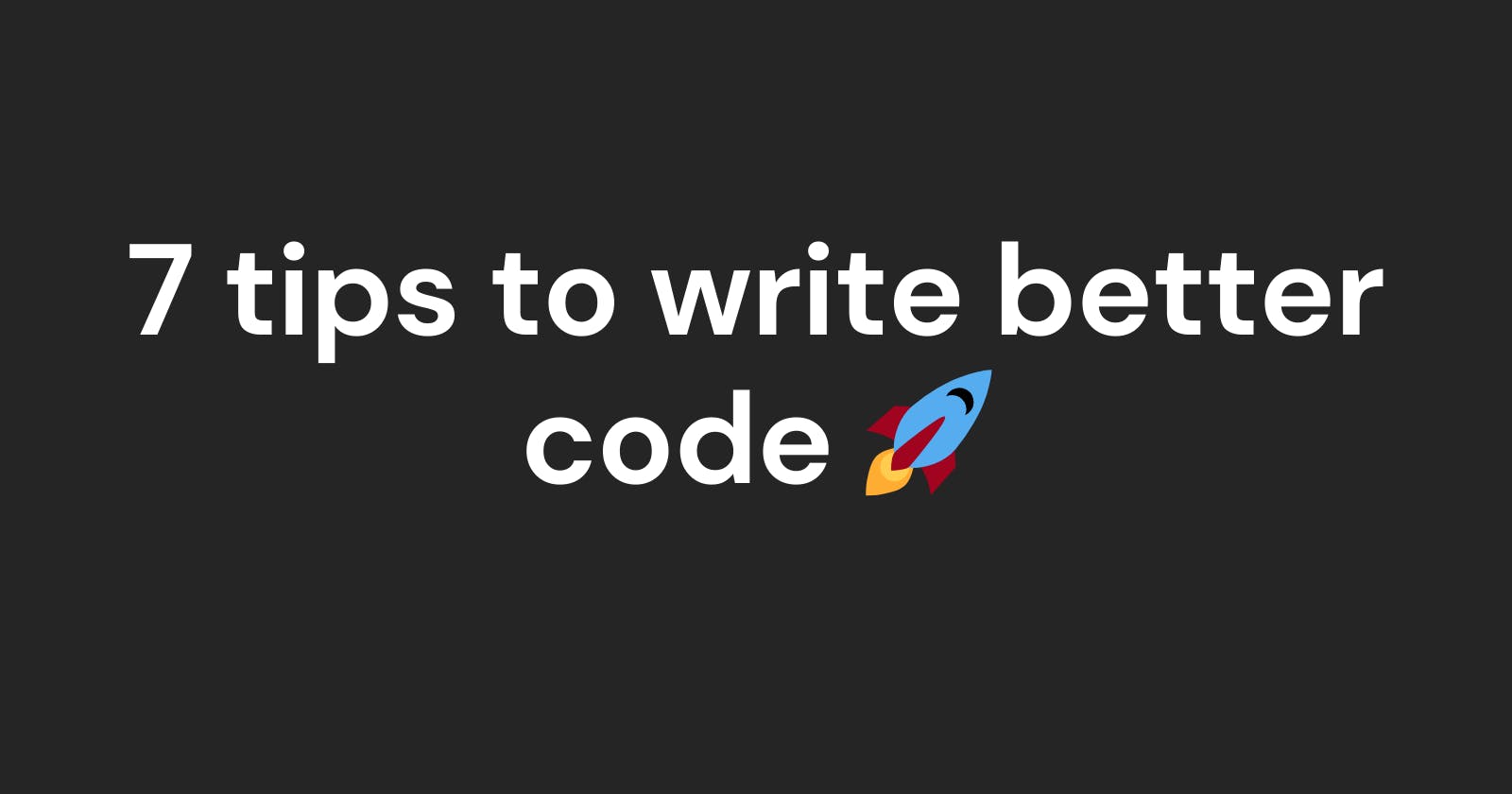Writing clean, efficient, and maintainable code is a crucial aspect of software development. It enhances the readability and ensures smoother collaboration with fellow developers.
In this blog, I will explore some key practices and tools that can significantly contribute to improving your code quality.
Using Prettier
Prettier helps in maintaining consistent code formatting. It ensures that our codebase follows a standardized style.
You can configure Prettier to match your team's coding style and set it up to run automatically on file save. This streamlines the workflow by a great amount.
ESLint
ESLint is a powerful static code analysis tool that helps in enforcing coding standards and identifies potential errors or bad practices in your code.
Additionally, ESLint can be integrated seamlessly into your code editor, providing real-time feedback as you write code. This immediate feedback loop allows you to catch issues early in the development process, leading to cleaner code overall.
Organizing Imports: Streamlining Code Structure
Maintaining a well-organized codebase is crucial for readability and ease of maintenance. The "organize imports" feature, often available in code editors, helps in arranging import statements in a systematic order. This ensures that imports are clear, and unnecessary duplicates are removed.
Simply open your command palette and type "organize imports" to let your code editor automatically arrange and clean up your import statements. This seemingly small step can make a significant difference in how readable and professional your code appears.
Removing Unused Imports: A Step Further in Optimization Beyond organizing imports, it's essential to regularly check for and remove any unused imports in your code. These unnecessary imports can bloat your codebase and potentially introduce confusion. Use your code editor's capabilities or integrated tools to identify and remove these redundant imports, keeping your codebase lean and efficient.
Removing Unused Packages: The Unimported Tool To take optimization a step further, consider using the
unimportedtool. This command-line utility analyzes your project for unused packages and dependencies, allowing you to eliminate any unnecessary bloat. By runningnpx unimported, you can ensure that your project only includes the packages it truly needs, reducing resource usage and potential conflicts.Version Control Best Practices: Maintain a Clean Commit History A clean and well-documented commit history is essential for collaboration and debugging. Adopting version control best practices, such as meaningful commit messages, small and focused commits, and regular code reviews, can significantly contribute to the overall quality of your codebase.
Code Reviews: Collaborative Quality Assurance Engage in regular code reviews with your team to share knowledge, catch potential issues, and ensure adherence to coding standards. Code reviews provide an opportunity for constructive feedback and can uncover areas for improvement that might go unnoticed during solo development.
Conclusion
Mastering the art of writing better code is an ongoing process that involves adopting best practices, leveraging powerful tools, and fostering a collaborative development environment. By incorporating tools like Prettier and ESLint, and practicing habits like organizing imports and removing unused packages, you'll be well-equipped to create code that is not only efficient but also a joy for both you and your team to work with. Remember, writing better code is not just a personal achievement but a commitment to elevating the quality of your entire development ecosystem.
Thank you for reading this blog 🙏, I hope this blog added to your knowledge.
Leave a comment 📩
And Don't forget to Drop a 💖

